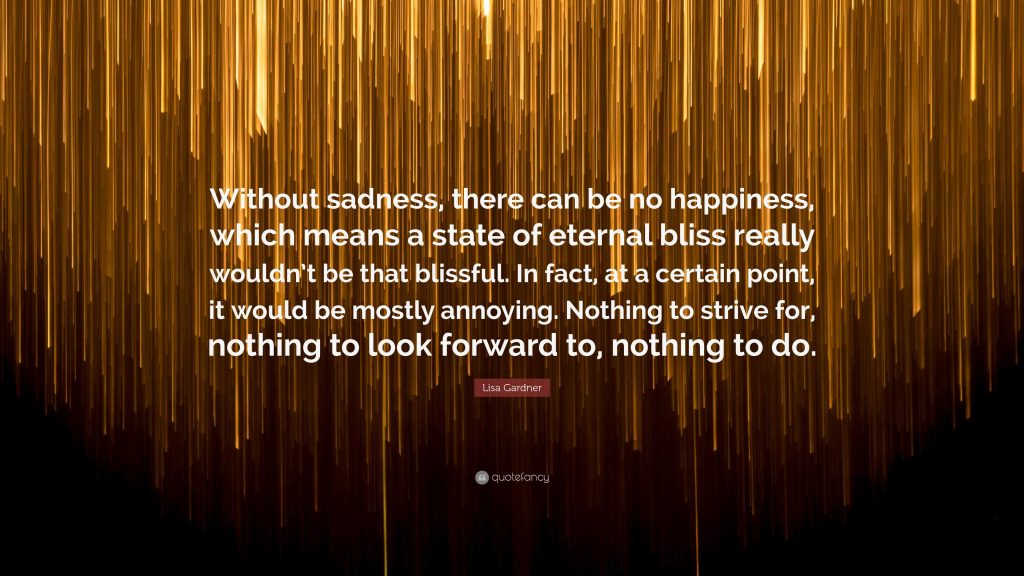One of my least favorite philosophical tropes, one which most people seem to take for granted, is the notion that we can’t have or appreciate one state of being without also experiencing its opposite.
For example:

Another example:
There is no positive without negative, and there is no negative without positive… You see, they’re explicitly different but implicitly the same, because they always go around together. And that reveals a hidden, implicit conspiracy between black and white, and the truth is you can’t have one without the other.
Alan Watts
I’ll concede that there are some theoretical situations where we need both ends of an opposite relationship to make sense of something. “Up” only makes sense if there is some comparable concept of “down”; floating in the void of space, up could be in any direct until you define it against something. But as is often the case, these sorts of purely analytical definitions don’t work well when you map them onto the real world.
When I’m happy, my experience contains all sorts of elements that aren’t strictly related to mood. I can concentrate better. I have more endurance for mental work. I’m more talkative and better at coming up with jokes. I fall asleep more easily. I don’t need to experience sadness to be able to reflect on these elements and decide that I like them. In fact, I don’t even need to experience the opposites of those elements (e.g. distractability, fatigue, social withdrawal, etc.). I have never experienced being dead, but it would be silly to suggest that I can’t appreciate life until after I die.
I suppose someone could say that I can imagine distractability, or death, or whatever, and it is that imagining that provides the necessary contrast that allows me to appreciate their opposite. Fine, that seems plausible. But that’s not the only way these ideas get used in everyday conversation. People often talk about the importance of actually experiencing bad things because they allow us to appreciate good things. Whether or not experiencing bad things (pain, embarrassment, discrimination, injury, etc.) is important, it certainly is not a prerequisite for appreciating good things. Suggesting otherwise is wrong, and lends itself to all sorts of disturbing justifications.
Leave a Reply